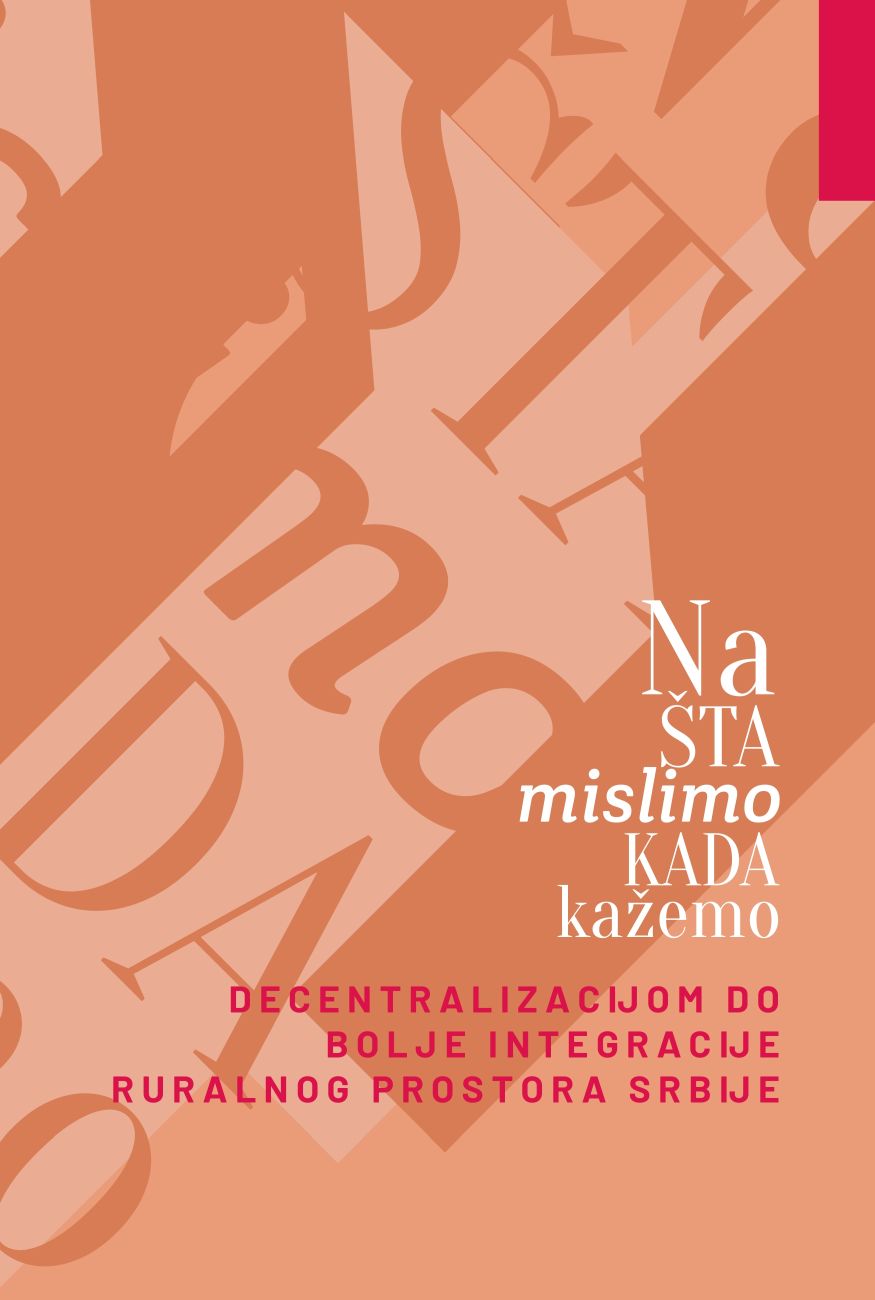
Na šta mislimo kada kažemo… Decentralizacijom do bolje integracije ruralnog prostora Srbije
European integrations: Chapter 19, Chapter 22, Chapter 27, Chapter 33 SDGs: SDG 01, SDG 10, SDG 11 Author(s): Marija Drobnjaković , Milena Panić Thematic Area: Active Citizenship and Democratic Institutions, Philanthropy, Solidarity, and Care Published: 2023 ISBN: 978-86-82324-33-1 Pages: 26 Language: Serbian Publisher: Institute for Philosophy and Social Theory, University of Belgrade Tags: book | More DetailsThis document discusses decentralization as a key strategy for enhancing rural development in Serbia, aiming to address spatial inequalities, economic imbalances, and social exclusion in rural areas. It emphasizes the need for establishing rural nodes and improving local governance structures to empower communities, enabling them to better address their specific needs and challenges.
Decentralization can have a significant impact on several key Sustainable Development Goals (SDGs). For instance, it can help reduce poverty in rural areas by improving access to essential social services and creating more economic opportunities, directly contributing to SDG 1 (No Poverty). It also supports SDG 9 (Industry, Innovation, and Infrastructure) by bolstering infrastructure in these areas, which is crucial for sustainable industrial development and fostering innovation. Through a more equitable redistribution of resources, decentralization aligns with SDG 10 (Reduced Inequalities), helping to narrow the economic and social gaps between rural and urban regions. Furthermore, it promotes SDG 11 (Sustainable Cities and Communities) by strengthening local governance structures and integrating rural areas into broader national development efforts, making them more resilient and sustainable. Finally, decentralization enhances democratic governance and local autonomy, which is vital for achieving SDG 16 (Peace, Justice, and Strong Institutions), contributing to stability and more effective institutions at the local level.
In the context of Serbia’s EU integration, decentralization plays a crucial role in aligning the country with key EU policies. It supports Chapter 19 (Social Policy and Employment), as it addresses social disparities and enhances employment opportunities in rural areas, thus improving living conditions and reducing poverty. Decentralization also complements EU Chapter 27 (Environment and Climate Change) by strengthening local governance over environmental policies, enabling more sustainable and localized responses to climate challenges. Furthermore, local financial management capacities are essential for the successful administration of EU funds, which is why decentralization is particularly relevant to Chapter 32 (Financial Control) of the EU integration process. It also contributes to Chapter 22 (Regional Policy), as it fosters balanced regional development, ensuring that resources are better distributed across the country. Finally, decentralization’s focus on local financial management enhances Serbia’s ability to effectively manage EU funds, aligning with Chapter 33 (Financial and Budgetary Provisions).
Overall, decentralization in Serbia is not only a vital strategy for addressing internal developmental challenges but also plays an essential role in aligning the country with EU standards, ensuring sustainable development, regional cohesion, and more effective governance.
Back
